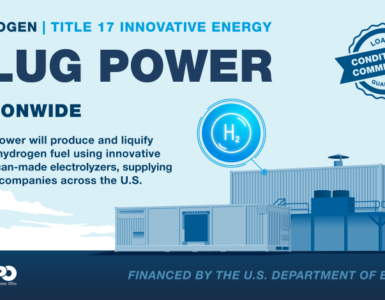Gasunie – Dutch national hydrogen network launches in Rotterdam.
Energy infrastructure company Gasunie has taken the investment decision for the first part of its national hydrogen network. Gasunie board member Hans Coenen announced this during the Hydrogen Europe Summer Market in Brussels.
The investment of this first section exceeds €100 million and is being developed by Gasunie’s subsidiary Hynetwork Services. Work will start after the summer in Rotterdam. This nationwide hydrogen network, which will cost around €1.5 billion, will connect major industrial regions in the Netherlands and surrounding countries, such as Germany and Belgium, from 2030 onwards.
In addition, the network will have connections to import terminals at seaports, domestic hydrogen production and large-scale hydrogen storage facilities. Last year, Hynetwork Services was commissioned by the government to develop the hydrogen network.
🔥 What about we co-host a webinar? Let's educate, captivate, and convert the hydrogen economy!
Hydrogen Central is the global go-to online magazine for the hydrogen economy, we can help you host impactful webinars that become a global reference on your topic and are an evergreen source of leads. Click here to request more details
The national network will eventually be 1,200 kilometres long and largely consist of existing natural gas pipelines. Rotterdam, as one of the seaports, will act as a major gateway for hydrogen to northwest Europe, with hydrogen able to be transported through the network to industrial customers in the Netherlands and surrounding countries, such as Germany and Belgium.
The first section of the hydrogen network will run in Rotterdam from the Tweede Maasvlakte to Pernis, a stretch of more than 30 kilometres. Construction will start after the summer and is expected to be operational by 2025.
Hans Coenen, Gasunie’s executive board member said:
I am proud that we can now make the investment decision for the launch of the national hydrogen network.
“This launch marks an important step in the development of the hydrogen chain, which we are taking together with partners. A word of thanks also goes to the Port of Rotterdam Authority, Shell Nederland and the Ministry of Economic Affairs for their constructive cooperation and to our shareholder for their trust. We are keen to contribute to the sustainability and security of supply of energy in the Netherlands and other countries in north-western Europe.”
Jorgo Chatzimarkakis, CEO Hydrogen Europe said:
Within the European Union, hydrogen is going to play a crucial role in making our societies more sustainable and contributing to European energy independence.
“Here, the Netherlands can play a connecting role to bring the international supply of hydrogen to industrial end-users. Ultimately, it is the companies that have to do it. I therefore compliment Gasunie on this decision taken and wish them good luck with its realisation.”
Cross-border hydrogen infrastructure
Hydrogen contributes to making the energy supply more sustainable. For example, in making industry and heavy transport more sustainable. But also as a feedstock in chemistry. Moreover, the hydrogen infrastructure enables connections with other countries and, with its large-scale storage possibilities, it provides extra flexibility in our green energy supply.
Gasunie plans to play a connecting role in the energy transition by developing hydrogen infrastructure in the Netherlands, Germany and the North Sea. Besides the national network in the Netherlands, the construction of which will start after the summer, Gasunie is also contributing to the German and European hydrogen strategy with hydrogen infrastructure (import, transport and large-scale storage) in northern Germany. Moreover, the Dutch cabinet has plans to designate Gasunie to develop a hydrogen network in the North Sea, which will further strengthen its international connecting role.
European hydrogen energy hub
From 2030, the national hydrogen network will connect seaports with the major industrial clusters (Eemshaven, North Sea Canal area, Rotterdam, Zeeland and Limburg) in our country and with hydrogen storage sites. It also provides connections to Germany (Ruhr area and Hamburg) and Belgium. It promotes the development of the Netherlands as a European hydrogen energy hub and the growth of the international hydrogen market. Moreover, it contributes to European energy independence.
The use of existing pipelines, made available by the decrease in natural gas transport, will benefit the environment and reduce costs. About 85% of the network will consist of reused natural gas pipelines, which is 75% cheaper than building new infrastructure.
Highlights:
- Gasunie takes investment decision to build first part of national hydrogen network.
- Dutch network connects large industrial end-users in the Netherlands, Germany and Belgium with storage facilities and international supply.
- Netherlands uniquely positioned as a hydrogen gateway for NW Europe.
READ the latest news shaping the hydrogen market at Hydrogen Central
Dutch national hydrogen network launches in Rotterdam, June 27, 2023








